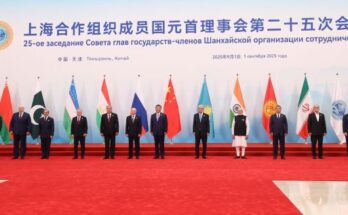
Team News Riveting
Researchers in South Africa are racing to track the concerning rise of a new variant of the coronavirus that causes COVID-19.
The variant harbours a large number of mutations found in other variants, including Delta, and it seems to be spreading quickly across South Africa.
A top priority is to follow the variant more closely as it spreads: it was first identified in Botswana this month and has turned up in travellers to Hong Kong from South Africa. Scientists are also trying to understand the variant’s properties, such as whether it can evade immune responses triggered by vaccines and whether it causes more or less severe disease than other variants do.
Meanwhile, countries around the world moved to restrict travel from southern Africa on Friday in a frantic effort to keep a newly identified, and apparently significantly evolved, variant of the coronavirus from crossing the borders.
“All air travel to these countries should be suspended until we have a clear understanding about the danger posed by this new variant,” Ursula von der Leyen, the president of the European Union’s executive arm, said in a statement. “And travelers returning from this region should respect strict quarantine rules.”
In the past, governments have taken days, weeks or months to issue travel restrictions in response to new variants. This time, restrictions came within hours of South Africa’s announcement — at least 10 countries around the world had announced measures before South African scientists had finished a meeting with World Health Organization experts about the variant on Friday.
The countries that halted or restricted flights from South Africa included Bahrain, Belgium, Britain, Croatia, France, Germany, Israel, Italy, Japan, Malta, the Netherlands, Hong Kong, the Philippines and Singapore.
There is no proof yet that the variant could diminish the protective power of the vaccines, but uncertainty on that question was one factor in the speed of countries’ move toward restrictions.



